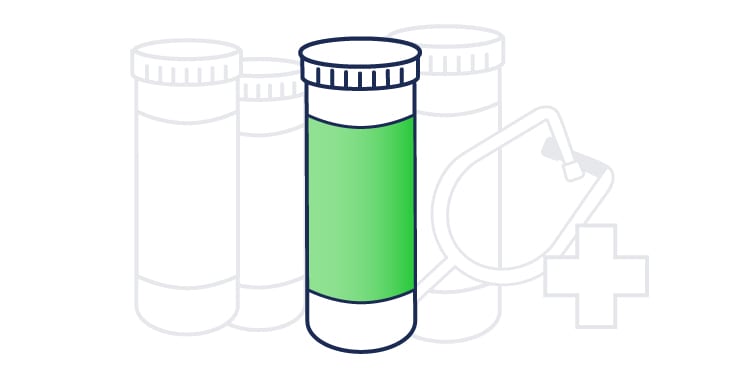
COVID-19: What you need to know about antibody testing
May 01, 2020

During the COVID-19 public health emergency, antibody testing has become a hot topic for both providers and the public. Should you perform these tests? Will you be reimbursed? How do you know which tests are the most accurate? Our compliance experts have compiled the information you need to make good decisions around antibody testing here to help you make the best decision for your urgent care clinic.
Disclaimer Regarding Guidance on Coding and Billing for COVID-19 Related Services.
The guidance set forth herein regarding coding and billing for COVID-19 related services is for educational purposes only and is based upon the limited information available to Experity at the time of publication. Nothing contained herein shall be deemed to constitute a representation, warranty or guaranty of proper coding or payment for any particular medical claim. The sole responsibility for proper coding and submission of any particular medical claim remains with you. You should consult with a certified professional coder and an attorney licensed in your state for guidelines specific to your state, contracts and applicable payors.
This is a living document that will be updated as this situation evolves. This version is current to what we know on April 29, 2020 at 10:36 am.
Coverage for antibody testing is evolving as tests become available. Experity is closely monitoring the situation regarding the emergency use of antibody diagnostic testing for the detection and/or diagnosis of the novel coronavirus (2010-nCoV) and the level of CLIA certification required.
On February 4, 2020 an Emergency Use Authorization (EUA) determination was published by the Secretary of the U.S. Department of Health & Human Services (HHS) regarding the use of in vitro diagnostics for detection and/or diagnosis of the novel coronavirus (2019-nCoV) subject to the terms of any authorization issued under section 564(a) of the Act.
Tests falling under the EUA and authorized by the U.S. Food & Drug Administration (FDA) as point of care tests, including SARS-CoV-2 point of care test systems, have been deemed to be CLIA waived tests. For the duration of the Public Health Emergency, such tests can be performed in a patient care setting that is qualified to have the test performed there as a result of operating under a CLIA Certificate of Waiver or Certificate of Compliance.
However, all tests listed in the FDA’s Test Kit Manufacturers and Commercial Laboratories Table that are designated to be performed by authorized settings of high complexity certified facilities are required to be performed only by those certified to perform high complexity testing under the Clinical Laboratory Improvement Amendments (CLIA) and hold a current certification confirming such. The same applies to moderate complexity test designations.
Tests being offered prior to or without an EUA under the policies outlined in the FDA’s Policy for Diagnostic Tests for Coronavirus Disease-2019 that have not yet been reviewed by the FDA, are not FDA authorized, and have not received a CLIA categorization.
While FDA has indicated that such tests may be appropriate for use in clinical laboratories and by healthcare workers at the point of care, the policies in the Policy for Diagnostic Tests for Coronavirus Disease-2019 do not provide a CLIA categorization and do not override any CLIA requirements.
Therefore, in accordance with CLIA, tests offered under this policy are considered high complexity by default until or unless they are authorized and deemed to be appropriate, through an EUA authorization or a general FDA review processes, to be performed as moderate or waived complexity tests.
Currently, all antibody testing falls under a CLIA categorization of high or moderate complexity requiring them to only be performed and billed by CLIA facilities with those certifications.
Laboratories using tests being marketed under the FDA’s EUA policy should be mindful of both the CLIA requirements which are enforced by the Centers for Medicare & Medicaid Services (CMS) and certain State authorities, and CMS guidance for laboratories during the COVID-19 public health emergency.
There is a risk that performing services not covered by their CLIA certificate could result in the loss of their certification.
Additionally, Experity cautions providers against pressure from sales representatives from manufacturers to purchase and perform tests without due diligence around compliance and billing. A lot of tests being sold worldwide are very substandard. An unacceptably large number of these tests have false negatives and false positives. There are many news stories about these poor-quality tests.
Should a facility/provider elect to perform tests outside their current CLIA certification level, Experity recommends healthcare providers provide this information in writing to patients prior to the test being administered, and require a signature be kept on file for each date of service a patient elects to be tested. This can be accomplished using an Advanced Beneficiary Notice (ABN) and appending modifier GA to each line item service for which you have secured an ABN.
Experity recommends healthcare providers be familiar with filing and billing requirements for patients who elect to present and utilize healthcare benefits through payers in which the healthcare provider is under contract.
Should a facility/provider elect to bill patients who have current health insurance as self-pay, for all or part of services rendered, consult your insurance contracts and legal counsel for proper treatment.
Emergency Use Authorizations; FDA (04/27/2020)
FAQs on Emergency Use Authorizations (EUAs) for Medical Devices During the COVID-19 Pandemic; FDA (04/27/2020)
Frequently Asked Questions (FAQs), CLIA Guidance During the COVID-19 Emergency; CMS
Standards and Certification: Laboratory Requirements (42 CFR 493) (04/27/2020)
Form Instructions: Advance Beneficiary Notice of Noncoverage (ABN); OMB Approval Number: 0938-0566
For updates on this topic and more, go to Experity COVID-19 Resources.
Join over 20,000 healthcare professionals who receive our monthly newsletter.